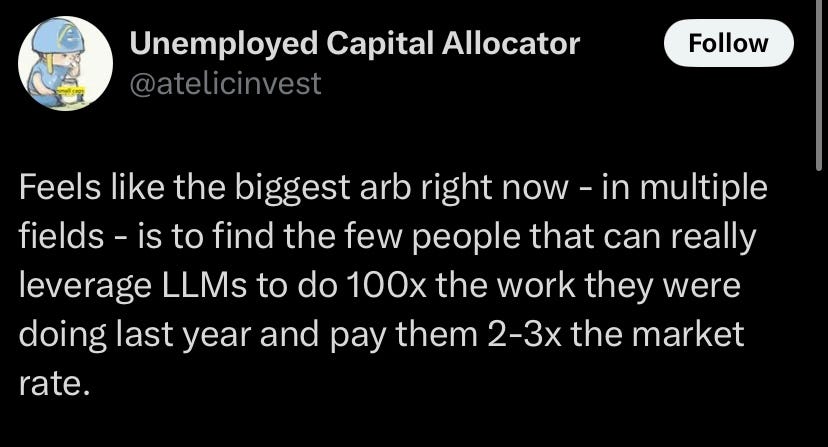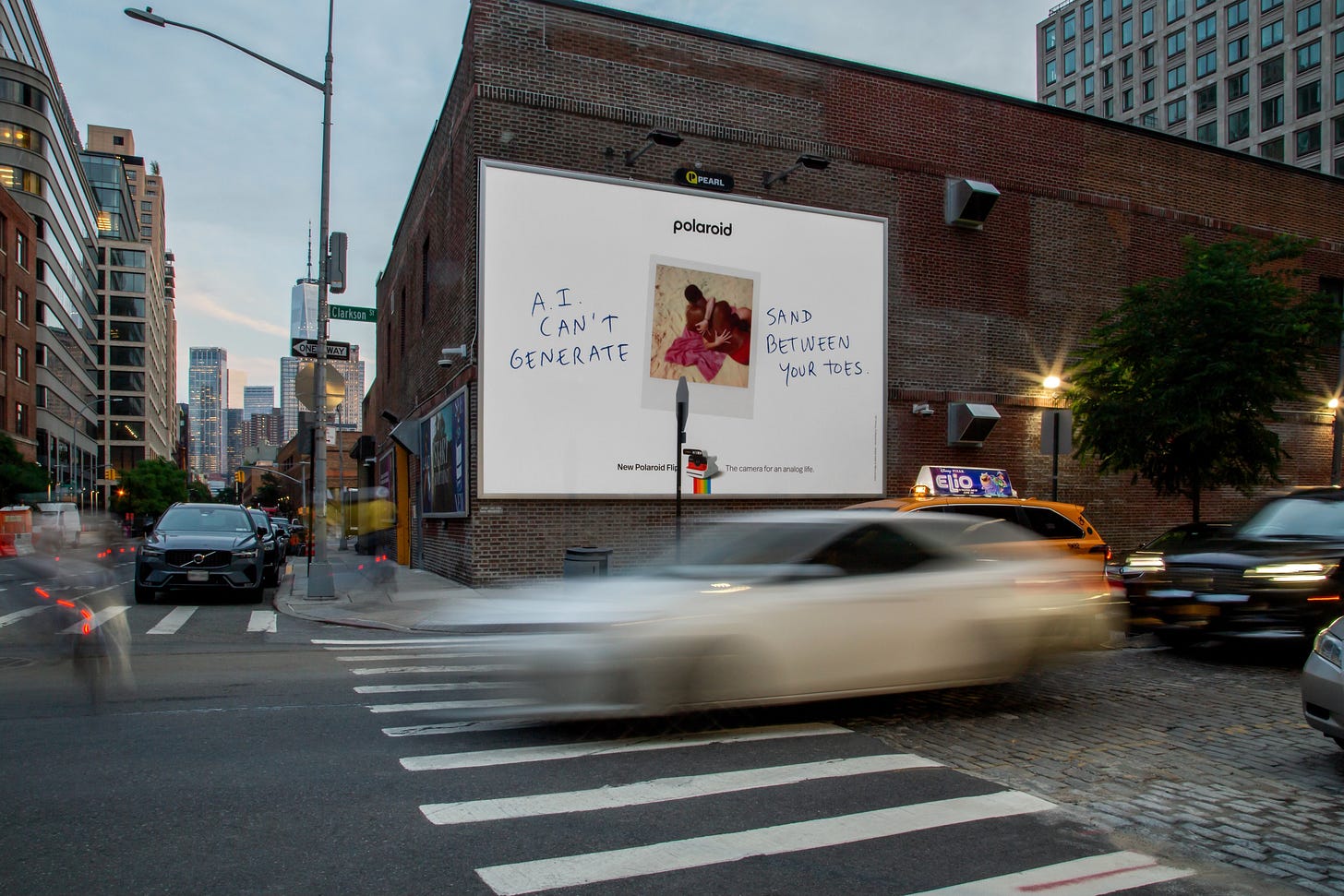AI Might Take Your Job But Only If You Let It
AI is here, will you let it crack you or crack you open?
“Bosses want you to know AI is coming for your job” — Yahoo
“CEOs Start Saying the Quiet Part Out Loud: AI Will Wipe Out Jobs” — Wall Street Journal
“AI isn’t coming for your job–it’s coming for your whole org chart” — Fast Company
Quite bleak. People shout that “The AI job apocalypse is here!”, but is it really? Will everyone be without work in 5-10 years?
“You’re not going to lose your job to an AI, but you’re going to lose your job to someone who uses AI.”
– Jensen Huang, the CEO of Nvidia
AI won’t replace you, but someone who leverages AI will, and this isn’t coming from me. It comes from the CEO of the company at the forefront of the AI movement.
It’s a tone change from the AI apocalypse truthers, but in a culture of indecision, it’s chill to accept the notion AI will take your job. It is easier to accept that your job is cooked in 5-10 years than to do something about it. It places the ownership of lives elsewhere and seeks out distractions, refraining from acting to avoid the real predicament. However, not choosing is a choice in its own right. It is indecision. It is the acceptance of being a bystander to life. Every choice we do and don’t make has repercussions, especially as AI further slithers in.
The idea that AI is coming to take your job has truth, but it is a choice.
At the very least, AI is a solid intern. It complements your work. It helps you become more efficient, automates repetitive tasks, offers a sounding board when trying to diagnose a technical issue, or builds complex Excel formulas that you otherwise would spend hours mulling over. I view AI use in three realms:
Some will outsource everything to AI, depleting their minds of creativity and stripping themselves of their work ethic.
Others might ignore AI, opting not to leverage its capabilities and denying what is coming.
The remaining will use AI as a performance enhancer to boost their skills, but still maintain a healthy balance of not being too reliant and only letting it into portions of their life.
My job might want me to automate a portion of my financial reporting using AI, I might not want to pay $220 for a Hyrox training plan, opting to have AI develop one for me, or I might use it as a research assistant to summon links about how to pick the right mattress. It can be a helpful tool, but whether I leverage it, ignore it, or let it consume me is up to me. David Brooks has a phrase I’ve always enjoyed,
“It’s gotta crack you or crack you open.”
Defining moments in our lives either crack you or crack you open. I can’t determine how life unfolds, but I choose how I react. I can become invulnerable, hard-brittled in denial of the future, or I could understand the opportunity and gravity of what lies ahead. Mark Zuckerberg offered some OpenAI staffers packages of $300 million for four years. Some even rumor that it is up to $1 billion for others. The capital behind AI is absurd. Sure, it could be a bubble. However, when Mark Zuckerberg of all people is throwing hundreds of millions of dollars behind it, I am paying attention. Heck, an AI company has a market cap of over $4 trillion, too.
Now, it is up to me to decide how I want to leverage it to help myself. Do I want to ignore it or embrace it?
I’ve always appreciated the labeling of AI as a personal intern. It can help automate my reporting, summarize my emails, extract relevant data from all my files on a specified topic, and tons more, giving me back further efficiency. I now have more time to understand the return of a project that I thought had always been wrong, or I can provide more robust reporting packages to teams because the monotonous, time consuming reporting pieces are completed for me. It’s letting AI crack me open, not crack me.
Now, I am not advocating for AI to replace all you do. I am not just a vessel of productivity, either. It’s an enhancer, not a replacement.
College kids are using AI to write essays claiming college is about “how well I can use ChatGPT.” However, they aren’t using the extra time to learn, hang with friends, or be a college student. One college student says she spends so much time on TikTok because she can now write an essay in two hours instead of 12 with ChatGPT. It’s scary. It requires zero thinking. It becomes an administrative task commanding AI to refine your essay to your liking. Independent thinking is in short supply, and it’s only getting smaller. If AI becomes my voice of reason, I am choosing to let it replace me.
Students, employees, and really anyone who outsources their writing and ideas to AI will find their screens full of words never having flexed a muscle of creativity or exercised a thought. I want to maintain a balance so I can still develop creative projects or ruminate on creative ways to enhance my financial packages. It is all a choice, and it seems like a pivotal one at that.
It is a balance. For me, learning to understand when not to leverage it is just as important. I find it best used in my job, and not my moments of livin’. Perhaps, Polaroid’s anti-AI ad campaign explains the balance best. It pushed back against the reigns of AI and screens, saying, “AI can’t generate the sand between your toes” and “real stories not stories and reels”.
Yes, it makes all the sense to use it to automate and streamline financial reporting packages at work. No, it makes zero sense to have it write a piece for me on Substack. Yes, using AI to write a complicated Excel formula at work that you might labor over for hours is a great use case. No, treating AI as a friend instead of going out in the world is not a real use case.
It is all a choice. The AI card has been dealt. Now it is up to us to control how we react. Will you let AI crack you or crack you open?
Appreciate you for reading.
-Scantron
Into the archives:







Crack me open, please. AI's been a great help to me in elucidating the ideas I write about on my own Substack. I still use and honour my own voice though.
Scantron, are you using AI in your own Substack workflow/process?